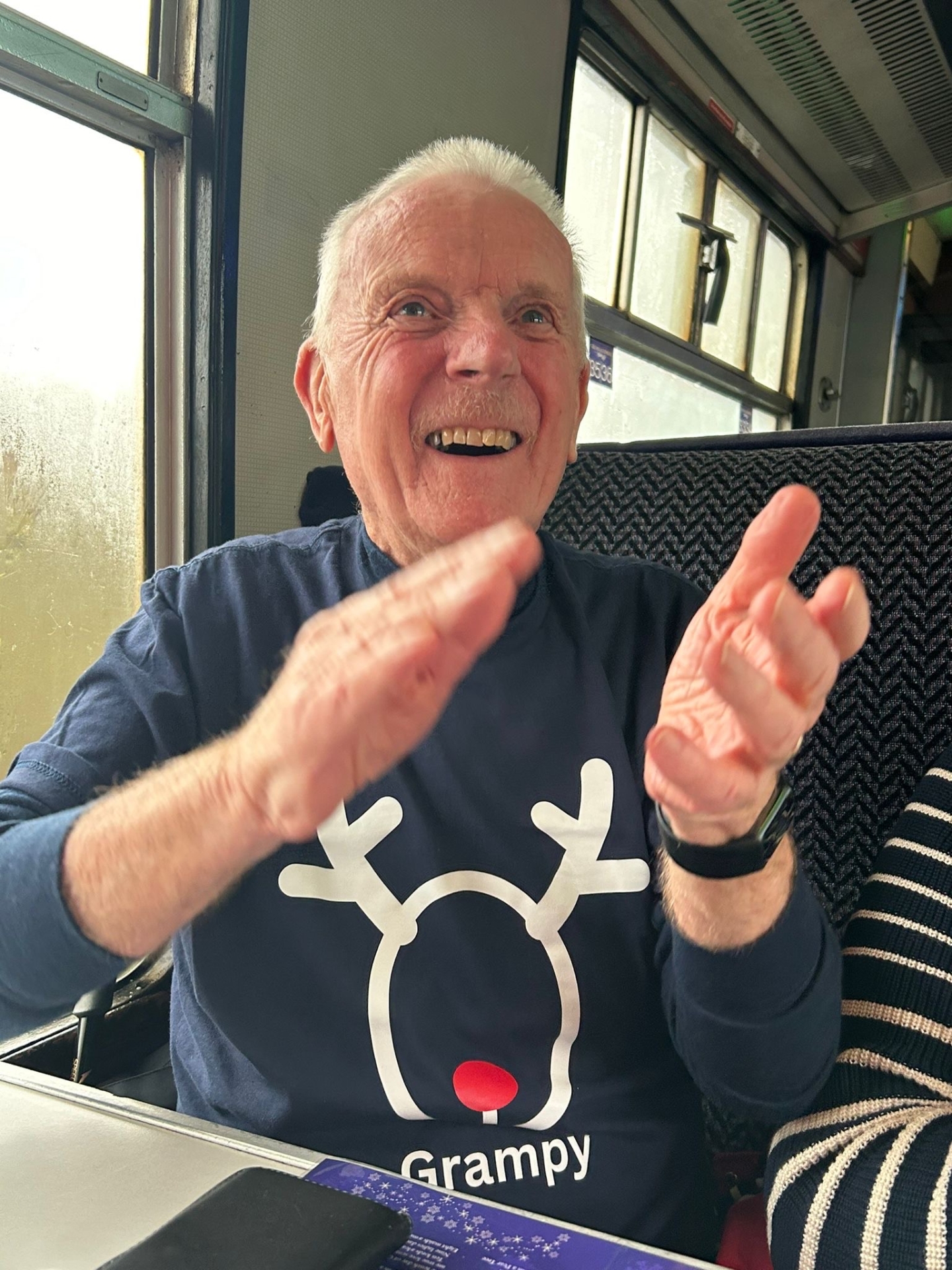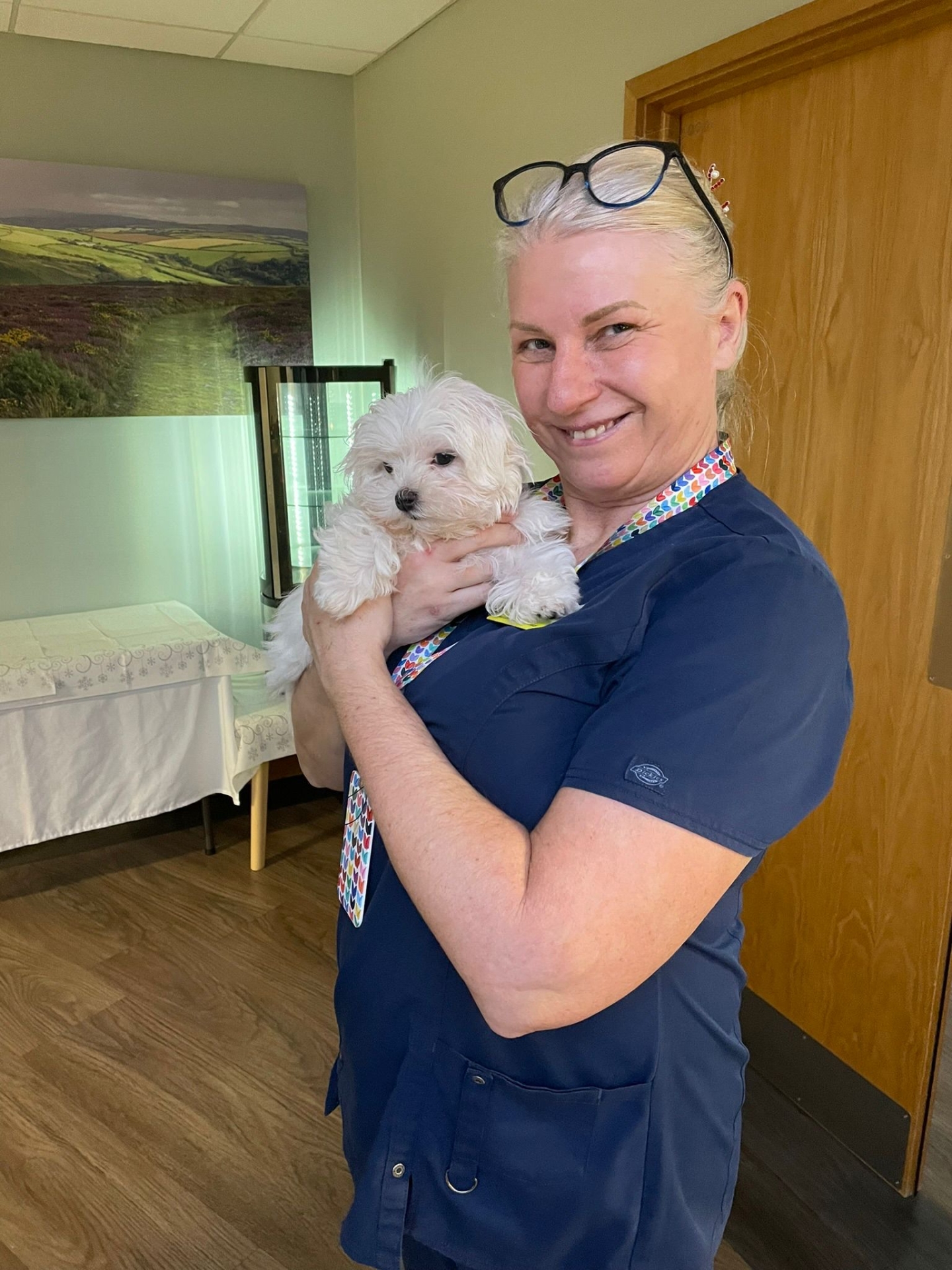
Paul Jewels of Braunton
A Braunton man has become a poignant symbol of the impact of the hepatitis C blood scandal that rocked the nation in the 1970s, 1980s and 1990s.
Diagnosed with hepatitis C in 2004, Paul Jewels attributes his condition to a blood transfusion he received in 1983 during chemotherapy treatment for cancer at the age of 37.
Now at 78, the former chartered surveyor who had his own practice, hopes the result of the inquiry on May 20 will offer some sort of accountability and compensation for thousands, including himself, who were given infected blood during transfusions.
The contaminated blood scandal, which affected more than 30,000 individuals in the UK, involved the administration of treatments tainted with HIV and hepatitis C.

This resulted in around 3,000 lives being lost, a number that continues to grow.
The virus includes flu-like symptoms, feeling tired all the time, loss of appetite, and feeling/being sick.
However, many people have the infection without realising it.
After concerns were raised by those directly impacted by the scandal, the government eventually bowed to mounting pressure and initiated an inquiry.
During the period from the 1960s to the 1980s, there are allegations that prison facilities in the United States made substantial sums of money by selling the blood of prisoners.
It wasn't until 1985 that comprehensive measures, such as heat-treating Factor VIII products, were implemented to eradicate the HIV virus.
Furthermore, routine screening for hepatitis C in UK blood donations did not start until 1991, exacerbating the spread of the infection during that period.
Recalling his journey, Paul spoke of the gradual onset of symptoms, including debilitating fatigue and pain, which went undiagnosed for years.
Despite persistent visits to doctors, his condition was often incorrectly diagnosed as depression until a locum physician finally ordered tests, which revealed the correct diagnosis.
Paul recalls sitting down with the doctor in 2004.
He said: “Paul, can I ask you some questions?”
He asked if Paul used drugs, if he was gay and if he had ever had a blood transfusion. Paul said no to drugs and no to being gay but said that he had been given a blood transfusion in 1983.
Then the doctor told him he had hepatitis C.
Paul said he was shocked but also relieved because he finally knew he wasn't imagining things.
After that, Paul joined a group that helps people affected by the contaminated blood scandal in England.
He also talked to lawyers about what happened to him.
Paul said: “I've been telling the doctors for a long time there was something wrong with me but it took years to finally get a diagnosis.”
Doctors in North Devon offered Paul a new treatment which managed to eradicate his hepatitis C.
The scandal, now recognised as one of the biggest medical disasters in history, prompted the inquiry, which has been chaired by Sir Brian Langstaff.
“The inquiry has shed light on the catastrophic failures that led to this tragedy,” said Paul.
He spoke to Collins Solicitors, who are currently acting for over four hundred of the victims and their families.
The solicitors believe that compelling new evidence has now been uncovered shedding light on this scandal and the efforts they say were made by the Department of Health to keep matters under wraps.
The solicitors have said: “We hope that at long last, this Report will lay bare the facts that led to the biggest treatment disaster in the NHS’ history. Many infected and affected people have waited over 40 years for the facts to be exposed and for public recognition of the terrible suffering that has been caused. People are dying every week from the effects of this scandal. The Inquiry itself has taken six and a half years to arrive at its findings, such was the enormity of the task.
“We’ll wait to see what the Report says before passing judgement on its findings. But whatever is recommended, we very much hope to receive a full and unequivocal apology from Government to all victims and their families for the obfuscation and denials that successive governments, members of the civil service and medical professionals were responsible for over the years, as the horrors of the contaminated blood scandal came to light.
“We also want the Government to implement all the recommendations that were set out over two years ago in Sir Robert Francis’ Compensation Framework without any further delay.
“The Government needs to act swiftly – there can be no further excuses once Sir Brian’s report is published.
“Only then will we feel we have received the justice we deserve.”
Paul said: “It's a massive thing, and it's about time someone was held accountable.”
Despite enduring years of illness and undergoing treatment, and suffering several strokes more recently, Paul remains hopeful for justice and closure.
He emphasised the need for accountability from pharmaceutical companies and government officials implicated in the scandal.
Paul, who is a remarkably positive man given the ordeal he has been through, said: “I want the government to acknowledge their mistakes and take responsibility. People's lives have been shattered, families torn apart. We deserve answers and compensation for the years of suffering.”
Away from the scandal, Paul has kept a positive outlook on life.
He trains therapy dogs that visit schools and hospices, including North Devon Hospice.
His first dog was Gozo who sadly passed, but now he is currently training PJ, who is seven months old.
He said he finds joy and purpose in training dogs as therapy animals, a passion that has led him to bring these furry companions into schools and hospices.

ABOVE: At North Devon Hospice
Through their gentle presence and affectionate nature, these therapy dogs offer comfort and companionship to those in need.
Paul has witnessed firsthand the positive impact these animals have on individuals facing difficult circumstances, whether it's helping children feel at ease in a school setting or providing solace to patients in hospices.
Despite his own health challenges, Paul remains dedicated to sharing the love and support of his therapy dogs with others.
Paul hopes that by sharing his story, people will understand the importance of holding those responsible for the contaminated blood scandal accountable.
Just like the victims of the post office scandal fought for justice, Paul believes that speaking up about wrongdoing can lead to positive change.
He wants others to see that even in the face of adversity, it's essential to stand up for what's right and demand accountability from those who caused harm.
Ultimately, Paul's hope is that his story will inspire others to advocate for justice and ensure that similar tragedies are never repeated.
As he waits for answers from the inquiry, he hopes it will also bring closure for him.
Paul told the Gazette: “I am not angry or bitter - I am not that sort of person. I do believe that there should be some accountability for the sake of my family!”
Subscribe or register today to discover more from DonegalLive.ie
Buy the e-paper of the Donegal Democrat, Donegal People's Press, Donegal Post and Inish Times here for instant access to Donegal's premier news titles.
Keep up with the latest news from Donegal with our daily newsletter featuring the most important stories of the day delivered to your inbox every evening at 5pm.